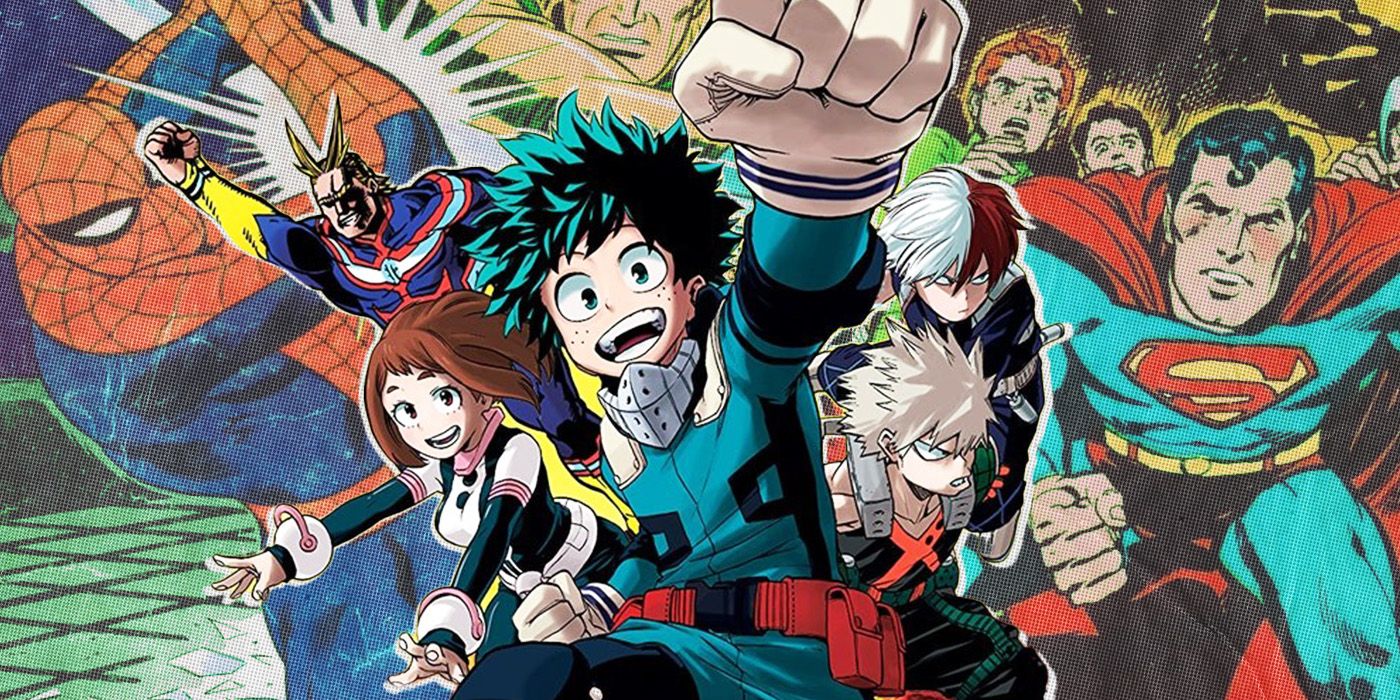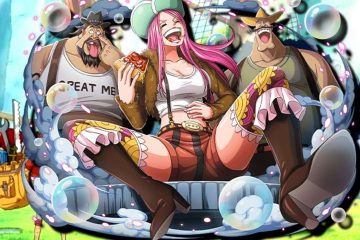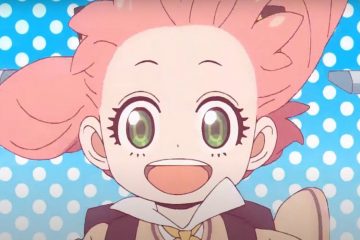Lately, it feels like all that chaotic energy from Western superhero comics has become a lot more prominent in anime. Two of the most popular are directly referencing superheroes, One Punch Man and My Hero Academia. It makes sense that anime, specifically shonen anime, would be such a natural fit for the tropes that have existed in comics for decades.Anime has had an artistic impact on Western media for a while now, so it really should come as no surprise that there is a certain amount of cross-pollination that comes with such intense cultural exchange. My Hero Academia definitely looks like a typical shonen on its surface with its wide-eyed protagonist and incredibly obvious anime hair, but there is a lot more happening under the surface there. Seasoned fans of Western comics may notice some ways in which the designs of many of the beloved characters are directly influenced by some of the most important comic book artists in history. Comics and manga have a lot more in common than it seems at first blush.At first, Western comics and manga don’t seem to have that much in common. Not just in terms of art style but in terms of content as well. Most people think of western comics as mainly being Marvel and DC, the big superheroes fighting the worst bad guys they can imagine and getting ther series rebooted every few years or so while movie franchises basically act as money printers for large studios. Manga, on the other hand, tends to have a lot more genres to choose from, ranging from the everyday to the downright bizarre. The history of superhero comics is actually incredibly recent in America specifically, only going back to 1936 with the first masked superhero character, The Clock. Western comic book traditions actually stretch all the way back to 1842 with what would be closer in concept to a romance story than anything else.My Hero Academia Collaborates With NBA and Crunchyroll for All Might Streetwear Line
Lately, it feels like all that chaotic energy from Western superhero comics has become a lot more prominent in anime. Two of the most popular are directly referencing superheroes, One Punch Man and My Hero Academia. It makes sense that anime, specifically shonen anime, would be such a natural fit for the tropes that have existed in comics for decades.
Anime has had an artistic impact on Western media for a while now, so it really should come as no surprise that there is a certain amount of cross-pollination that comes with such intense cultural exchange. My Hero Academia definitely looks like a typical shonen on its surface with its wide-eyed protagonist and incredibly obvious anime hair, but there is a lot more happening under the surface there. Seasoned fans of Western comics may notice some ways in which the designs of many of the beloved characters are directly influenced by some of the most important comic book artists in history. Comics and manga have a lot more in common than it seems at first blush.
At first, Western comics and manga don’t seem to have that much in common. Not just in terms of art style but in terms of content as well. Most people think of western comics as mainly being Marvel and DC, the big superheroes fighting the worst bad guys they can imagine and getting ther series rebooted every few years or so while movie franchises basically act as money printers for large studios. Manga, on the other hand, tends to have a lot more genres to choose from, ranging from the everyday to the downright bizarre. The history of superhero comics is actually incredibly recent in America specifically, only going back to 1936 with the first masked superhero character, The Clock. Western comic book traditions actually stretch all the way back to 1842 with what would be closer in concept to a romance story than anything else.
#Hero #Academia #Western #Comics #Artists #Biggest #Impact
Note:- (Not all news on the site expresses the point of view of the site, but we transmit this news automatically and translate it through programmatic technology on the site and not from a human editor. The content is auto-generated from a syndicated feed.))



